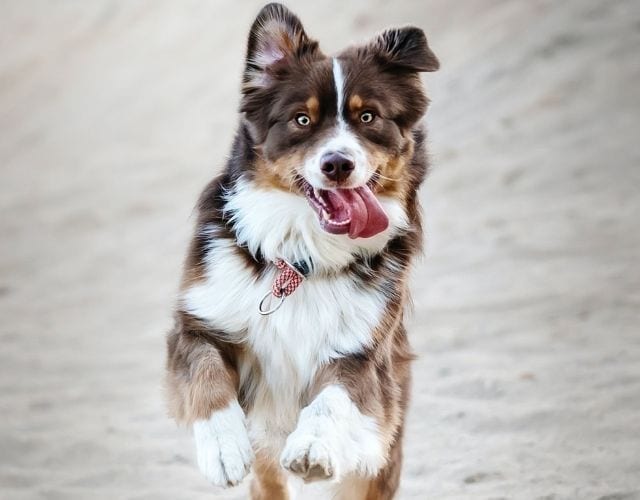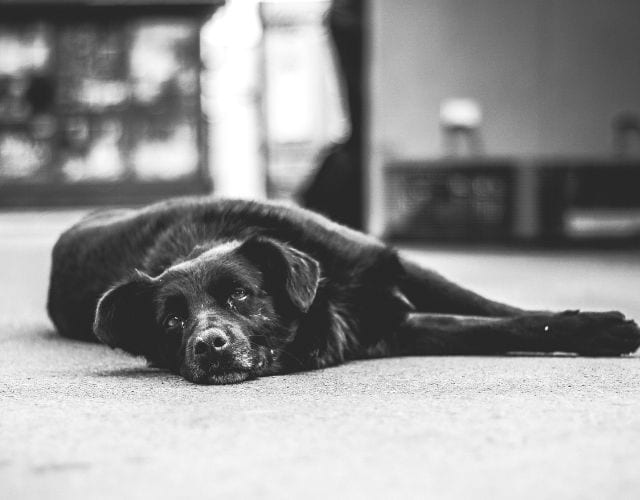It turns out that our canine companions are not so different from us after all! After a recent study on canine behavior, we now have proof that our dogs really do mature as they age.
As dog parents, we have always known that our dogs change as the years go by. While we can acknowledge the differences in our adult dogs compared to their puppy selves, it can be challenging to pinpoint the exact changes. Thanks to this study, it’s no longer a mystery!

To determine how our furry friends change as the years go by, Borbála Turcsán and her colleagues set out to study a group of 217 Border Collies. With each pup ranging from 6 months to 15 years of age, they were able to gather an array of results based on each canine age range. Four years later, the remaining dogs were asked to return to perform the same activities once again.
This canine personality study wanted to dive into all aspects of problem-solving and obedience that our dogs may experience throughout their lives. To get the most accurate results possible, the team broke the study into 6 categories.
- Exploration test: The dogs were sent into a room to explore the area and different objects in the area, while the owner stood in the room, ignoring them.
- Frustration test: The experimenter dangled a piece of sausage on a string in front of the dog’s face, just out of reach, for one minute.
- Novel object test: The dog was shown a self-moving toy and was allowed to interact with it for one minute.
- Ball playing test: The dog parent threw a ball three times and allowed the dog to retrieve it.
- Obedience test: The dog parent gave the dog four commands (sit, lie down, stay and come) while the experimenter was distracting the dog with noises.
- Problem-solving test: The dog parent showed their dog how to remove the lid of a bin to get food from it, and then the dog had one minute to remove the lid themselves and get the food.
By performing these tests on the same dogs 4 years apart, the experimenters could come to a few conclusions based on canine personalities. While the more adventurous and curious canines were still similar to their younger selves, their level of excitement declined significantly as they aged.

“Dogs that are active and curious when young will remain active and curious when they get old, but only compared to other dogs. A dog’s personality changes over time, and, on average, every dog becomes less active and less curious as they age.” – Borbála Turcsán
Overall, the experimenters found that a dog’s ability to problem solve improves until the age of 6 and then remains stable. While their excitement for novelty objects doesn’t change much during the first 2 years, their novelty excitement does fade significantly after 3 years of age.
One thing that did not change, however, was a dog’s ability to handle frustration. While their problem-solving ability did increase until the age of 6, their frustration levels remained the same as they aged. This was a bit surprising to the experts, as they thought their frustration tolerance would decline.

While this study dove into multiple aspects of canine behavior, one thing is for sure all around. Our dogs do mature as they get older, and their need for exercise significantly decreases.
“Dogs get less active with age, and that should give hope to the people who have puppies that are too active. And while they become less oriented to problem-solving and novelty-seeking as they get older, they remain obedient and social, which is probably the most important thing for owners.” – Dr. Katherine Houpt
While dog lovers already know that their favorite furry friends change with time, it’s nice to see a study dedicated to proving it. We can’t wait to see future research on our beloved companions and hopefully understand them better than ever before!
H/T: nbcnews.com
 Toledo, United States.
Toledo, United States.